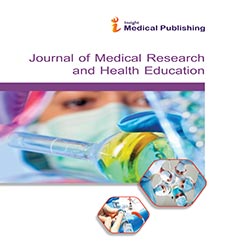Leader-Member relationships and their influence on organizational citizenshipbehavioramongnursesinSaudiArabia
Alaa Alharbi1 and Fatma M Baddar2
Citation: Alaa Alharbi, Leader-Member relationships and their influence on organizational citizenship behavior among nurses in Saudi Arabia, Nursing Care 2020, 29th International Conference on Nursing Care Prague, Czech Republic, July 20-21, 2020, 01
Abstract
Background: Behaviors that improve hospital and individual efficiency have become more valuable because healthcare institutions are highly dependent on customer satisfaction. Thus, organizations need to adopt new behaviors (organizational citizenship behavior) that improve individual and corporate efficiency. High-quality leader-member relationships can result in employees more readily adopting greater extra official responsibilities. Several studies have attempted to examine the association between nurse leadermember relations and organizational performance through organizational citizenship behavior. The current study explored the leader-member relationship and organizational citizenship behavior in Saudi Arabia to fill a gap in the literature and better understand the present state of the leader-member and organizational citizenship behavior and how they possibly relate.
Objectives: To explore how leader-member relationship may influence organizational citizenship behavior among nursing personnel.
Methodology: A descriptive cross-sectional descriptive method was used to describe and examine the association between variables, using a sample of 538 nursing staff in Saudi Arabia. A self-report questionnaire was used to measure and analyze via statistical analysis program (SPSS®); P-value considered significant at 0.05.
Findings: The resulting leader -member relationship had a mean score of 3.69±0.58, while organizational citizenship behavior mean was 3.97±0.37. The Finding showed a significant relationship between leader-member relationship and organizational citizenship behavior.
Conclusions: The nurses moderately perceived leader-member relationship and organizational citizenship behavior, and there was a significant relationship between these factors.
Discussion: More work is necessary to attempt to enhance the loyalty levels of staff nurses, as this will support relationships in practice and affect the competency and efficiency of patient care. The organizational citizenship behavior reported was highly positive and it arguably supports and matches the requirements of the 2030 vision of the kingdom of Saudi Arabia. The Vision 2030 plan to reduce Saudi Arabia’s dependence on oil, diversity in its economy, and develop public service sectors such as health sector.
Biography
Experienced Nursing with a demonstrated history of working in the medical device industry. Skilled in Nursing, with 3 years’ experience in neonatal,2years Ob/Gyn ,1 year endoscopy , and 3 years as radiology nurse ( intervention nurse).
My career experiences were:
Assistant Chief of Infection Control Department, King Abdulaziz Hospital, Jeddah, KSA (2015 - 2016).
Staff Nurse, Recovery Room and Operation Room, King Abdulaziz Hospital, Jeddah, KSA (2013 – 2015).
Staff Nurse, Recovery Room, National Guard Health Affairs King Abdulaziz Medical City, Jeddah, KSA (2012 – 2013).
Assistant Nursing Director During Hajj Seasons, at Jabal Alrhma Hospital (2014) and East Arafat Hospital (2019), Makkah Almukaramah, KSA (2019).

Open Access Journals
- Aquaculture & Veterinary Science
- Chemistry & Chemical Sciences
- Clinical Sciences
- Engineering
- General Science
- Genetics & Molecular Biology
- Health Care & Nursing
- Immunology & Microbiology
- Materials Science
- Mathematics & Physics
- Medical Sciences
- Neurology & Psychiatry
- Oncology & Cancer Science
- Pharmaceutical Sciences
